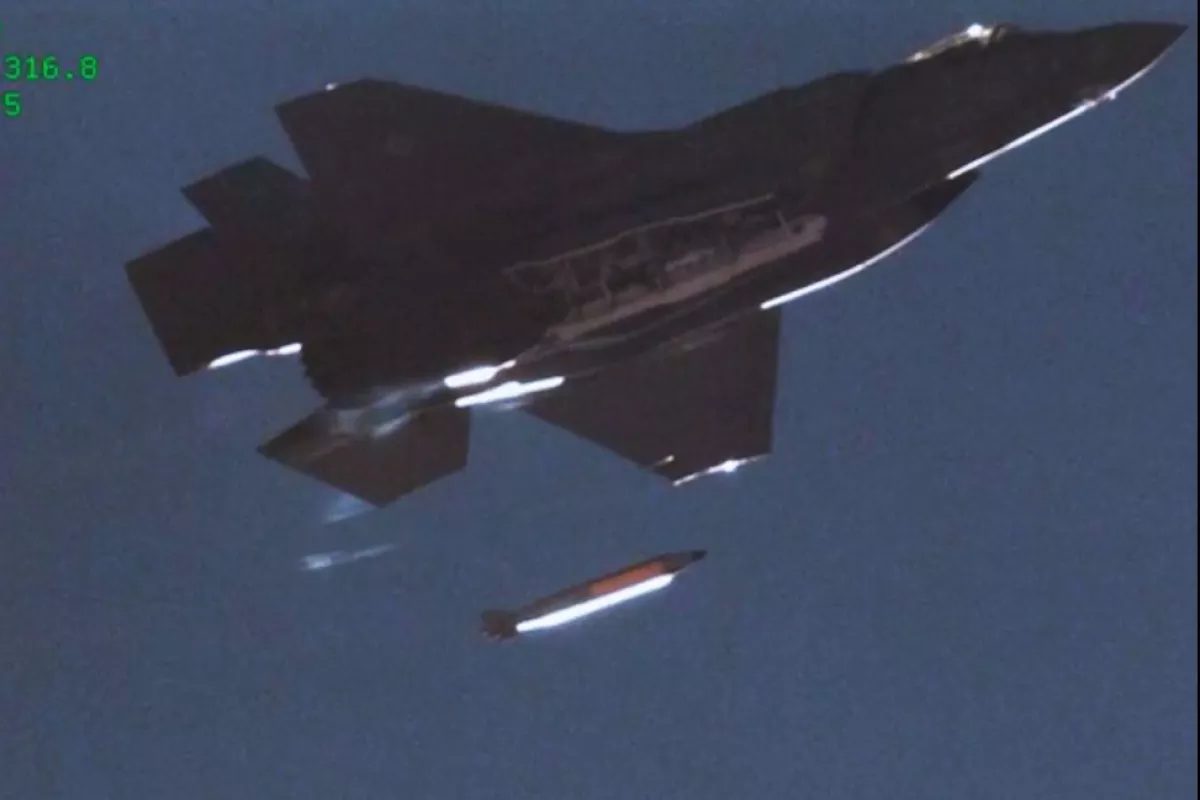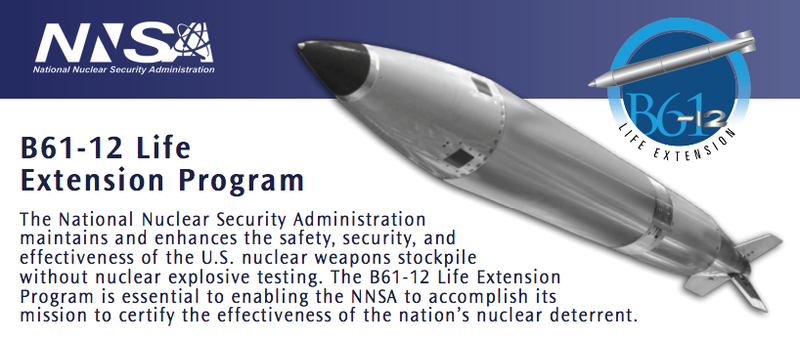On August 25th, a US Air Force F-35A Lightning II dropped a mock refurbished B61-12 nuclear bomb for the first time.
Footage was released on November 23rd.
In 2018, the Pentagon upgraded its B61 nuclear gravity bombs, to increase their lifespan for decades to come.
“The upgraded, B61-12 LEP will replace all of the bomb’s nuclear and non‐nuclear components for another two decades, and improve the bomb’s safety, effectiveness, and security. This life extension program will address all age-related issues of the weapon, and enhance its reliability, field maintenance, safety, and use control,” the National Nuclear Security Administration said in an infographic.
Weighing in at 825 lb (374 kg) and with an explosive yield of between 0.3 and 50 kilotons, it’s the latest variant of the B61 family of bombs that was fielded in 1968. Since then, it has flown on the B-2A bomber, F-15 and F-16 fighters, and the Panavia Tornado.
The company that had to refurbish the bombs is called Sandia, and it has been tasked with helping to extend their service life by 20 years while making them more secure and more reliable. Sandia provides non-nuclear component development and acts as technical integrator for the complete weapon to make sure it works on the intended platforms.
The life extension program includes 400 of the B61-12 bombs and involves refurbishment of parts, replacing fuses and batteries that are suffering from old age, adapting the bomb to new aircraft, and general technical upgrades.
Sandia says mock refurbished B61-12s have already flown on an F-15E Strike Eagle fighter jet in March and a B-2 Spirit bomber in July.
“This was the first test to exercise all systems, including mechanical, electrical, communication and release between the B61-12 and the F-35A,” says Steven Samuels, a manager with Sandia’s B61-12 Systems Team. “The latest test is a critical piece in the F-35A and B61-12 program Aboard the newest fighter, the B61-12 provides a strong piece of the overall nuclear deterrence strategy for our country and our allies.”
What made the F-35A test different is that not only was the aircraft equipped with a nuclear weapon system, but it is the first time that such a bomb was carried in an internal bay on a fighter jet.
Usually, the bomb is carried on an outside mount, but the F-35 fighter jet can carry the B61-12 or other weapons on the inside to maintain stealth, and also drop them in supersonic flight.
MORE ON THE TOPIC:







